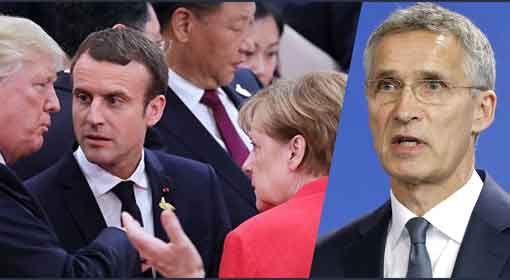Brussels/Washington: The EU’s ‘European Central Bank’ has accused the US of using its political clout to keep the USD rate low as against the Euro. The European Central Bank has warned that this issue will be raised in this year’s ‘G-20’ summit.
 ‘The US Treasury Department is exercising its pressure for the second time, to keep the USD rates down. The US political efforts for affecting the currency exchange rates is a cause for worry, for the European Central Bank. This issue was raised in the Davos meeting. This issue will also be raised in this year’s ‘G-20’ summit’, criticised Ewald Nowotny, a senior official in the European Central Bank.
‘The US Treasury Department is exercising its pressure for the second time, to keep the USD rates down. The US political efforts for affecting the currency exchange rates is a cause for worry, for the European Central Bank. This issue was raised in the Davos meeting. This issue will also be raised in this year’s ‘G-20’ summit’, criticised Ewald Nowotny, a senior official in the European Central Bank.
The value of the USD has slipped by 2% in the new year. Before this, the USD had slipped by 10% in the year 2017. Although this is beneficial to the US multinational companies, it affects the US importer prices. At the same time, it is predicted that the US people also will be faced with rising prices.
In view of this, Nowotny targeted US President Donald Trump. The current boom in the US economy, is a result of the policies of the previous government and the decisions by the ‘Federal Reserve’, said Nowotny.
There are indications of tensions rising between US and European Union (EU) ever since President Trump assumed power. The US President had initially criticised the European nations while targeting NATO. Thereafter, while promoting the ‘America First’ policies, he had accused that a country like Germany was getting majorly benefited from the trade. In an interview with a British news channel, Trump had indicated a possible action, raising the issue of trade, with the EU.
There were strong reactions from the European countries over the warning. The European Commission had warned that if the US in anyway threatens of a trade war, the EU will give an apt and firm reply to that. While Trump is promoting the ‘America First’ policy, the EU has started a strong front for Free Trade Agreement (FTA) in different parts of the world.
In the last few months, Canada and Japan have come to a consensus with the EU for a free trade agreement. While negotiations are on with Australia, New Zealand and the Latin American countries. On the other hand, the US has exited from the ‘NAFTA’ and ‘Trans-Pacific Partnership’ agreements, and has taken the decision to impose heavy taxes on the goods imported from China and Canada.












